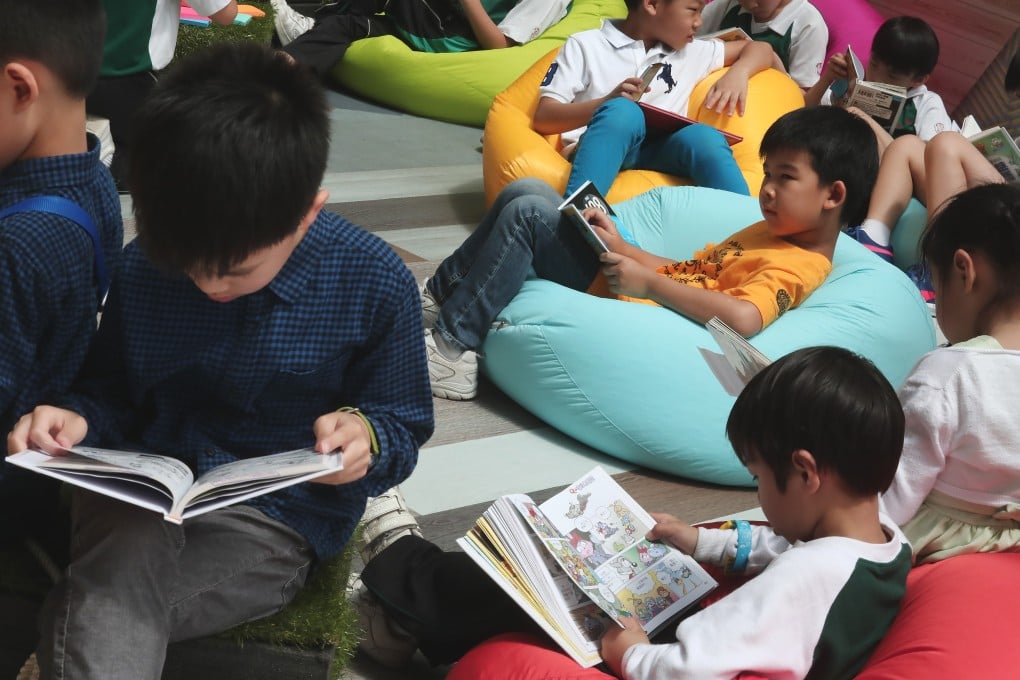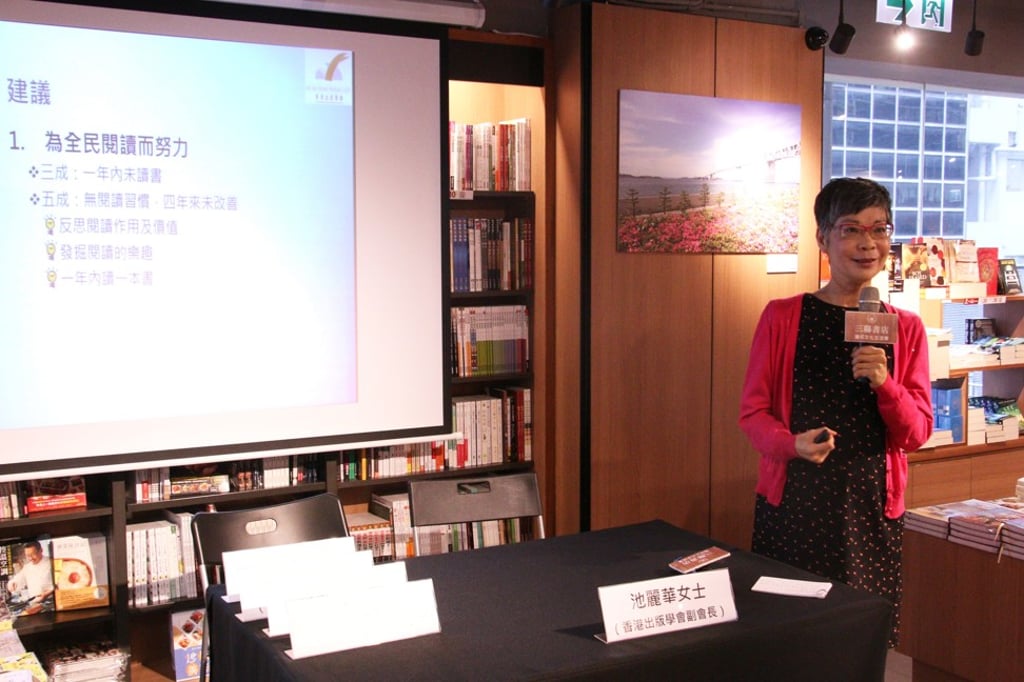Hong Kong’s poor reading habit ‘will affect ability to learn independently’ as survey shows almost a third have not read printed book in past year
- Lack of time and preferring to read online among the reasons given in Hong Kong Publishing Professional Society survey

Almost a third of Hongkongers have not read a printed book in the past year and among them, nearly half have never formed a reading habit, a survey has revealed.
The Hong Kong Publishing Professional Society interviewed 1,876 people by phone about their reading habits from January to March. The results, released on Thursday, found 589 people said they had not read a physical book in the past year. Some 286 interviewees said they never read printed books.
The main reasons given included lacking the time and preferring to read online.
Rebecca Chee Lai-wa, deputy head of the society, said: “Hong Kong as a metropolis should work harder to improve this.”

Chee expressed concerns about young interviewees who said they never had a reading habit.
“I’m worried about this because reading can help cultivate one’s thinking ability. Without the habit, young people will lack the ability of independent learning.”